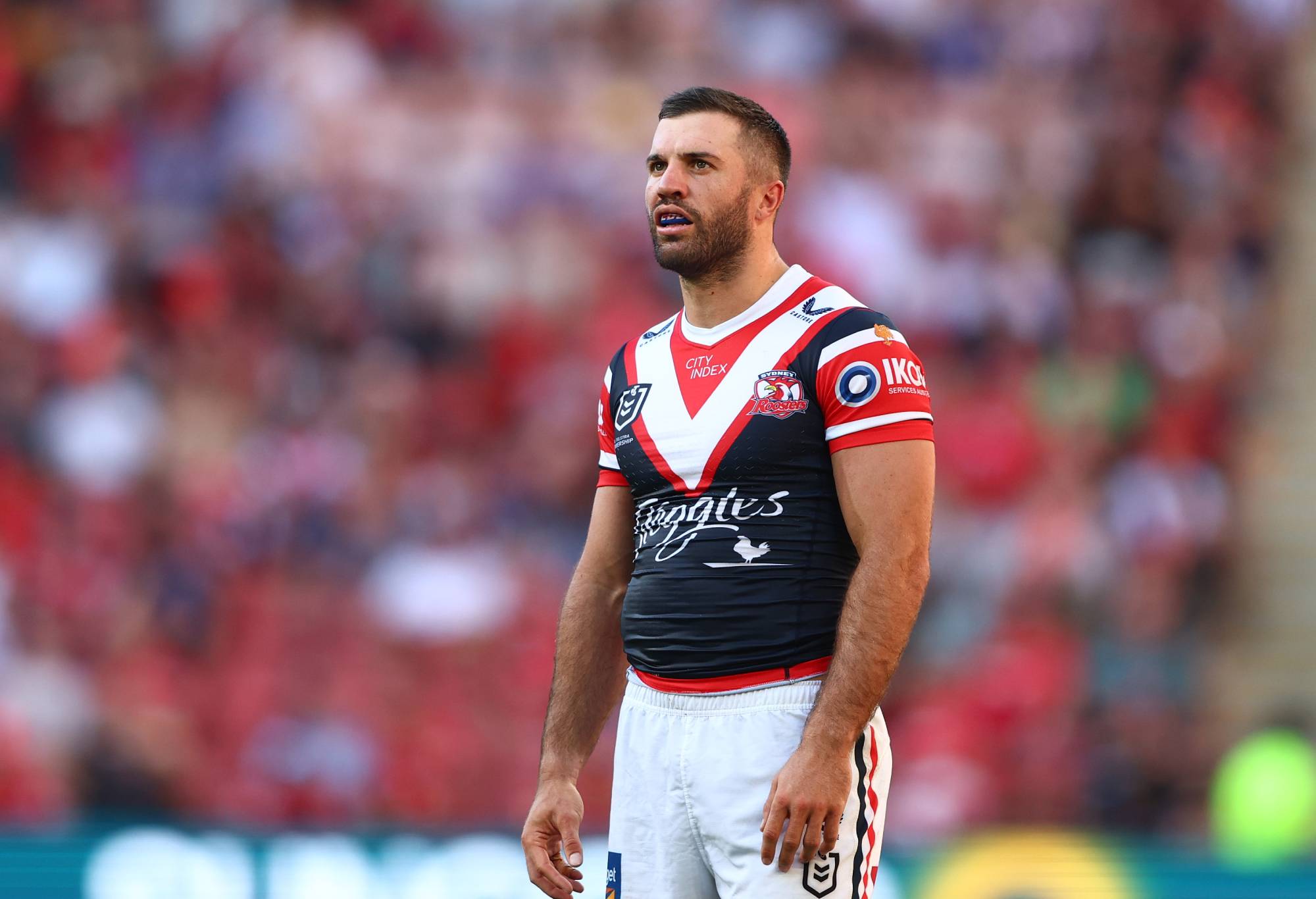Blunt force drama: Are NRL players receiving the same realistic advice on concussions as AFL counterparts?

With the AFL heightened in its collective awareness of the long-term effects of head knocks, one could well be led to wonder whether NRL players are receiving the same medical advice, or simply ignoring the science.
The Western Bulldogs chose Aiden O’Driscoll as pick No.55 in the 2023 AFL draft. The player had dreams of becoming an AFL star, yet was suddenly left unable to compete after a shocking pre-season head clash that has since seen the 18-year-old announce his retirement from the game.
O’Driscoll is the third player to retire this season, after Melbourne’s Angus Brayshaw and Collingwood’s Nathan Murphy also pulled the pin on their dreams, after medical advice suggested to all three that their lives as fathers, husbands and grandfathers could be compromised if another blow to the head was to come in the short to medium term.
All credit to the players who have made the call in favour of living a long and healthy life, yet with Sydney defender Tom McCartin now sitting on the pine and uncertain whether there is another game to play due to a litany of concussions that have stalled his impressive career, one wonders just how many more will be forced to leave the competition in 2024.
McCartin’s brother Paddy did so in 2023 and the list of AFL players admitting reality and preferring quality of life over one of misery with a degenerative brain continues to grow at a rate much faster than that of their NRL counterparts.
It appears, despite horrific and mostly accidently collisions in rugby league, that there remains some rather absurd, macho bravery metric that encourages players to ignore the long-term damage that a brain bouncing around in a human skull actually does.
Logic suggests that all sportspeople involved in games where physical contact is the norm, should be receiving the same medical and health advice. You would hope that is the case.
However, it appears that either the doctors are saying something quite different to NRL players as opposed to those in the AFL, or the rugby league world is somehow interpreting that advice in a rather deluded way.
I took great relief from the retirement of Dale Finucane, a player who, based on the positions I saw him place his head across a 251 game NRL career, should have left the game far earlier than he did.
At 32, Finucane is one of the best, most loyal and competitive I’ve seen in the modern era, yet what his brain scans will look like in ten years time is frightfully concerning, based on the situations that men like Mario Fenech, Ian Roberts and Steve Mortimer now find themselves in.
No one played with more selflessness than Mario, Roberts was the most wholehearted forward I’d seen until Steve Price emerged and Mortimer is my hero; the greatest Bulldog and one of the most brilliant attacking players to have ever graced our playing fields.
All three now struggle, with Mortimer committed to a care facility at the far too young age of 67.
This is what countless men running around in the NRL today will face in the coming years. You can call me or this kind of sentiment alarmist if you like, but the facts are against you if that is the view you hold.
Boyd Cordner saw the light in 2021 and all credit to him. Luke Keary has followed suit this season, yet plays on with the knowledge that further blows to the head will mean an instant end to a wonderful career.
James Tedesco is the latest player under the spotlight and could it be that the Roosters’ medical staff and associated specialists outside the club are doing a better job of telling NRL footballers the truth, as opposed to what they want to hear and presenting the facts more bluntly, as their AFL counterparts appear to be doing?
From the outside, it does seem that the NRL is lagging behind the AFL, with men on the wrong side of 30 finally getting the message and leaving the game they love, hopeful of a healthy life in the future.
Modern great James Tedesco is one of the latest NRL players to be affected by consistent knocks to the head. (Photo by Chris Hyde/Getty Images)
Much younger men are leaving the AFL to pursue other endeavours, in the hope of their healthy brain being around for some time to come.
In 2014, Roberts called for the “end of contact sport”, and then proceeded to watch his ex-teammate Fenech continue to decline, to the point where Mario is no longer Mario.
Dr Rowena Mobbs has been a key voice in the fight to protect NRL players from themselves, appearing on national television with former Parramatta player Ray Price and treating some of the men mentioned above.
Dr Mobbs has my own mother on her books and knows pretty much all there is to know about the human brain. Far more I would suggest than rugby league players; many of whom appear to be in denial about what the future might hold for them.
I hope her advice and that of other specialists is getting to the right people, capable of passing on realistic health expectations to NRL players. It appears that the AFL space is doing far better in addressing an issue that threatens the very existence of the games we love.
Doing so, displays the respect the players deserve, not to mention their partners and children.
A game is a game, the human brain and life itself is something far different and ultimately greater.
